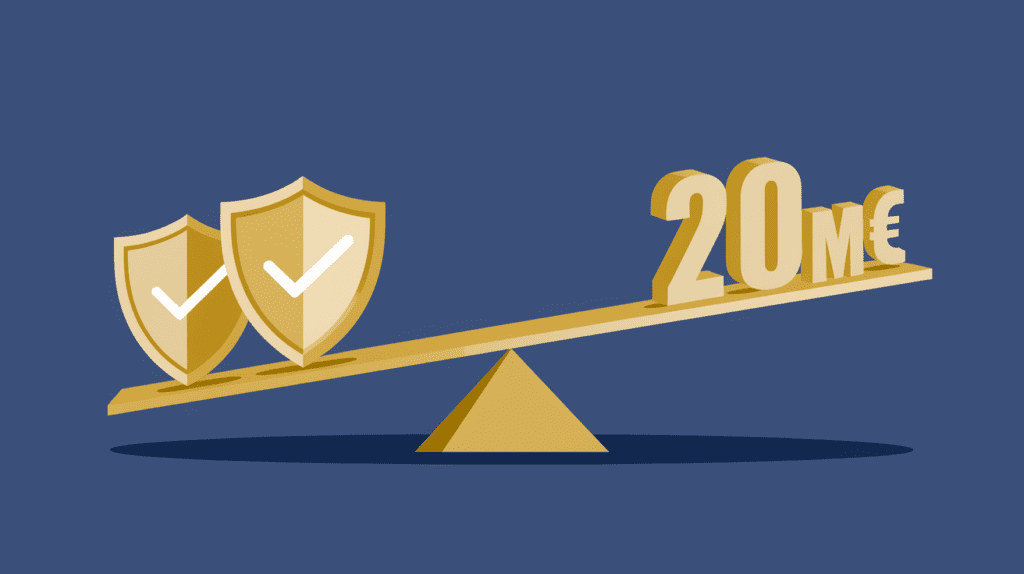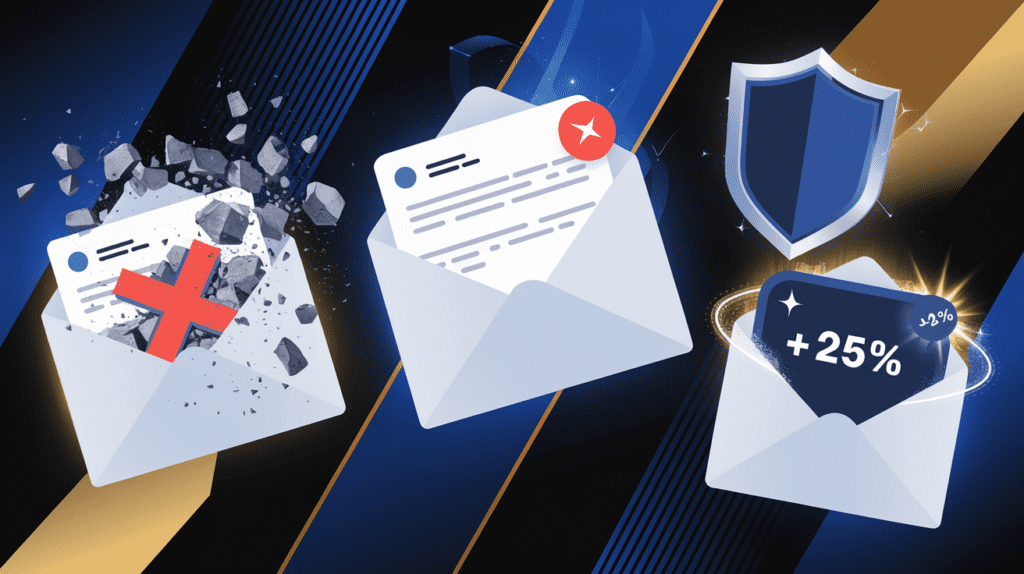- ⚡️ Discover how a start-up boosted its conversions by 25% thanks to GDPR
- 🛡️ Master the 8 golden rules that protect your business from fines of up to €20M
- 💡 Use my 25 years of expertise to transform your legal obligations into a business advantage
- 🔄 Anticipate the 6 essential rights of your users for flawless compliance
- 🚀 Deploy an ethical data strategy that builds customer loyalty and reassures your partners
- ✨ Go from constraint to opportunity with methods tested on hundreds of companies
After more than 25 years in the field of data protection, including several intense years since the GDPR came into force in 2018, I would like to share with you my expertise on this crucial subject. As a former DPO and current consultant, I have supported dozens of companies in their compliance, and I still see a lot of confusion about this regulation today.
GDPR: Beyond the simple regulatory framework
I still remember the heated debates in 2016 during the adoption of the GDPR. At the time, we already anticipated the considerable impact that this text would have on businesses. Today, I can say that this regulation has profoundly transformed our approach to the protection of personal data.
A telling example: in 2019, I supported a start-up which considered the GDPR as a simple administrative formality. Six months later, after implementing an effective data protection strategy, they saw their conversion rate increase by 25% thanks to the increased trust of their users.
Personal data and processing: what are we talking about?
What is personal data?
Personal data is any information that can identify a person directly or indirectly. This includes information such as name, address, telephone number, but also more sensitive elements such as medical data or political opinions.
What is data “processing”?
In the context of the GDPR, processing means any operation carried out on personal data: collection, storage, modification, deletion, etc. This can include anything from subscribing to a newsletter to tracking a customer’s purchases. THE GDPR strictly regulates these actions in order to protect user privacy.
The fundamental principles of the GDPR: field experience
The GDPR is based on three main fundamental principles which guide all data processing practices:
- Legality, loyalty and transparency : Personal data must be processed lawfully and transparently. This means that any collection or processing must be carried out within a legal framework, and users must be informed of the use of their data.
- Limitation of purpose : Data must be collected for specific, explicit and legitimate purposes. They cannot be used for other purposes without the user’s consent.
- Data minimization : Only data strictly necessary for the purpose of processing must be collected. This reduces risks to user privacy.
The objectives of the GDPR: protect data and hold businesses accountable

The three main objectives of the GDPR aim to guarantee a trusted digital environment for European citizens while empowering businesses:
- Protection of citizens’ rights and freedoms : By guaranteeing the confidentiality of personal information.
- Corporate accountability : Companies must demonstrate their compliance, in particular by documenting their processes.
- Harmonization of data protection practices : This unique legal framework allows for consistent application across all EU member states.
User rights
The GDPR gives citizens several rights to control the use of their personal data. Here is a table summarizing these six essential rights, with a simple description of their usefulness:
| Right | Description |
|---|---|
| Right to information | The user must be informed clearly and precisely about the collection and use of their data. |
| Right of access | The user can request to consult the data held on him and obtain a copy. |
| Right of rectification | Allows users to correct inaccurate or incomplete information. |
| Right to erasure | Also called “right to be forgotten”, it allows you to request the deletion of data in certain cases (end of the relationship, withdrawal of consent, etc.). |
| Right to limitation | Allows the processing of data to be restricted under certain conditions, such as when its accuracy is contested. |
| Right to portability | The user can request the transfer of their data from one service to another, in a secure manner. |
| Right to object | Allows you to object to the processing of your data in certain cases (for example, direct marketing). |
These rights must be communicated in a transparent manner, and the user must be able to exercise them simply by contacting the organization in question.
The bans
The GDPR imposes strict restrictions on the collection and processing of personal data:
- Processing without consent or legal basis : Any use of personal data must be based on legal justification (consent, execution of a contract, etc.).
- Processing of sensitive data : Data such as health, political opinions or religious beliefs require enhanced protection measures.
- Transfer outside the EU without guarantees : Personal data of European residents cannot be transferred to a third country without equivalent protection being ensured.
These prohibitions protect users by reducing the risks of violation of their fundamental rights.
My eight golden rules for compliance
To comply with the GDPR, any organization must observe the following eight golden rules:
- Collect only the necessary data : Only collect the information strictly necessary to achieve your objective.
- Inform the data subjects : Make sure that users know how their data is collected and used.
- Obtain explicit consent : Consent must be freely given, after information, and can be withdrawn.
- Secure personal data : Adopt appropriate security measures to protect user data.
- Respect access and modification rights : Users must be able to consult and modify their data.
- Define retention periods : Data should be retained only for the necessary period.
- Keep a record of processing operations : Keep a record of the processing operations carried out.
- Notify in the event of a data breach : In the event of a breach, notify users and the CNIL within the required timeframe.
Sanctions and non-compliance: a reality I have encountered

Failure to comply with GDPR exposes organizations to financial penalties of up to €20 million or 4% of global turnover, whichever is greater. For example, a company that neglects the security of its users’ data can face a considerable fine. These sanctions aim to encourage companies to respect data protection standards, ensuring the confidentiality of personal information.
In 2020, I supported a company that risked a significant fine following a data leak. Thanks to effective crisis management and the rapid implementation of corrective measures, we were able to limit the negative impacts.
Towards a more secure and ethical web
Beyond legal obligations, GDPR is an opportunity for businesses to build customer trust by demonstrating their commitment to privacy and security. By complying with GDPR rules, companies not only avoid sanctions, but also contribute to a more ethical and transparent digital environment.
After all these years working on the GDPR, I remain convinced that this regulation is an opportunity for companies to differentiate themselves. I’ve seen organizations turn their regulatory constraints into competitive advantages, making data protection a unique selling point.
Do not hesitate to contact me to explore these topics in more depth. My experience has taught me that GDPR compliance is not just a question of rules: it is above all a question of corporate culture and ethical commitment.
- How To Use Manufacturing Capacity Planning Tools Effectively - 30 January 2026
- How to Create and Enhance Property Listing Photos for Portals and Displays Using AI - 27 January 2026
- List of the Best OTC Crypto Exchanges in 2026 - 8 January 2026




